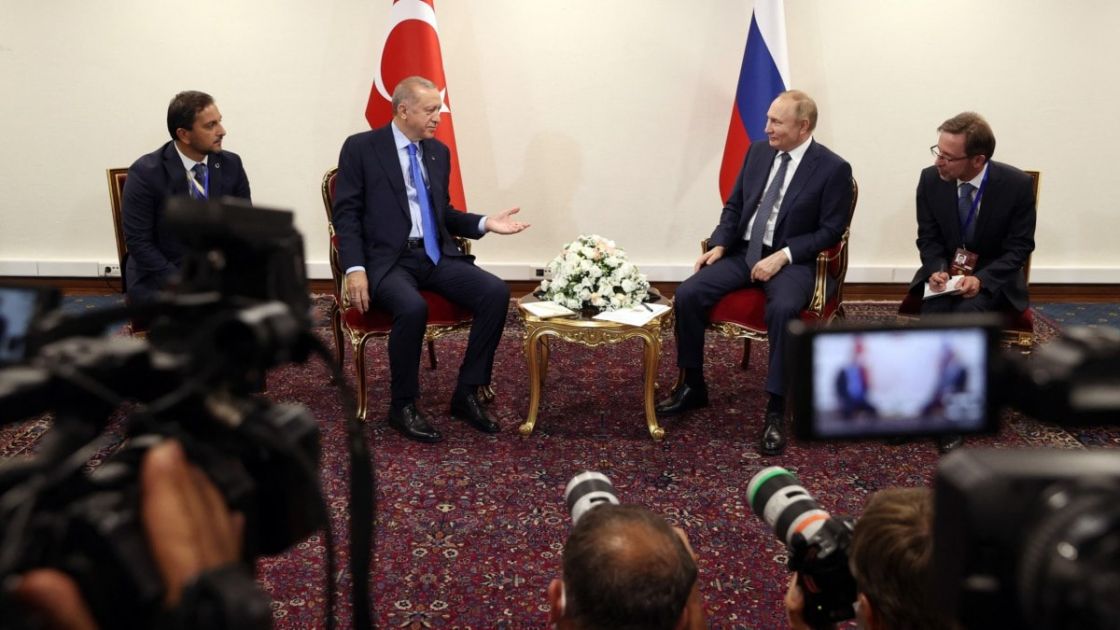- Editorials
- Posted
Kassioun Editorial 1083: Syria and Turkey, Whereto?
Recent statements by the Turkish Foreign Minister on Syria provoked a wave of reactions that were predominantly tense on the part of the extremists from the Syrian sides. This is not surprising, of course, since we have become accustomed to the extremists doing their utmost to obstruct any step that would bring us closer to a solution.
Understanding the development of the Turkish position should be based on the nature of the ongoing global conflict, and the resulting major shifts in the balance of power and in the positioning of countries and different currents at the various levels.
In this context, it is not difficult to conclude that the statements of the Turkish Foreign Minister are not a solo Turkish initiative, but rather a coordinated action within the Astana Trio, which is constantly progressing towards grabbing the initiative to implement the solution in Syria through UNSC Resolution 2254, regardless of whether or not the West participates therein. We say that the statements are not a solo initiative, because they were preceded by several Russian statements and signals in the same direction, as well as statements by the Iranian Foreign Minister during his recent visit to Damascus, in which he described the crisis between Syria and Turkey as a “misunderstanding”, and said: “We are trying to resolve the misunderstanding between Syria and Turkey through diplomatic means and dialogue”.
The Syrian-Turkish border extends for more than 900 km and is the longest land border Syria has with any of it neighbors. In addition, this border is historically a vital border filled with residential communities and cities on both sides, as is the border with Lebanon, and unlike the border situation with Iraq and Jordan. This has resulted in an extensive and longstanding population overlap. This is in addition to the issue of water resources revolving around, though not limited to the Euphrates and the Tigris rivers.
All these factors combined, and within the new international circumstance, make reaching normal relations between Syria and Turkey a matter of national security for both countries. In direct concrete terms, breaking the Western siege on Syria cannot take place effectively without turning the Syrian-Turkish border into an essential tool in blockading the imposed Western siege.
However, all this cannot be achieved without concrete signals from Turkey towards two basic issues. The first is to prove that it does not have expansionist ambitions in Syria and to prove its respect for Syria’s sovereignty and unity, which is something that it has thus far expressed verbally. While this is good, it is not enough, and it will not be completed nor its credibility achieved without concrete actions to prove it.
The second issue is respecting the sovereignty of the Syrian people in self-determination through a comprehensive political solution in accordance with UNSC Resolution 2254, which provides for a dialogue among the various Syrian sides, and not a victory through “military decisiveness” nor “overthrowing”. The recent statements indicate that Turkey is partially close to the essence of the resolution, but it is also insufficient. It must be reflected in the position on the required political dialogue among Syrians, which must be a comprehensive dialogue that does not exclude any political component, including the Syrian Democratic Council (SDC), which the tense Turkish position therefrom is still incomprehensible. Tense positions that close the horizons before any Syrian side and seek to prevent it from participating in a comprehensive solution will only reinforce the American efforts towards partition. In parallel, national interest, and the interest of the SDC and what it represents, contribute to the same direction, which is the direction of moving away from Americans and their sabotaging games.
The model for the forthcoming solution in Syria, which must include everyone and be based on dialogue, can itself turn into a positive contagion in the region, and in Turkey itself, whose national security cannot be achieved in a stable and sustainable manner without reaching fraternal formulas for cooperation and for resolving problems through dialogue.


